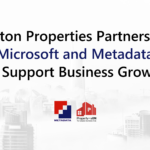
Customer Relationship Management (CRM) as the name suggests, is how your business interacts with customers. A detailed record and analysis of your past, present, and future customers and their interactions with the company. This is the beauty of CRM as it journeys with the customer from lead to sale and beyond.
A CRM presents and identifies customers based on their lifetime value. It is the operational engine running the company’s customer philosophy. This is why it is inevitable for companies to have a CRM embedded into their day-to-day business functioning. Now, there’s been a lot of talk about CRM being a software. What is CRM really about? Let’s find out.
Customer Satisfaction and CRM
The concept of CRM arises from the need to answer a simple question – Is the customer satisfied?
The 1970s: The answer first sprouts up in the form of annual customer surveys and direct interactions. The technology at the time allowed them to categorize customers using spreadsheets and lists.
The 1980s: The concept adds database marketing and contact management to the mix– popularly named as Sales force automation.
The 1990s: CRM finds identity in the hands of Tom Siebel of Siebel systems when he designs the first CRM product. From there began the gold rush of CRM. “
“CRM is Software”
The default view is that ‘CRM is just software.’ So let’s start there for now. A basic ‘software’ definition – It is a technology that helps companies to manage their relationship with customers, both current and prospective.
A CRM system is designed with one clear goal in mind: Improving business relationships, which eventually leads to satisfied customers. Technology transformed the concept of CRM from ‘understanding if the customer is satisfied’ to figuring out ‘how to keep the customer satisfied.’
CRM systems simplify customer relationships by defining raw customer data into organized racks and providing actionable insights. It helps companies provide a wide variety of functionalities ranging from:
a. Sales force Automation: Lead management, Deal Management, Contact Management, and Workflow Automation.
b. Omni-Presence: Integrate email, social media, and customer portals.
c. Analytics: Reports, Dashboards, and Visual decision making.
d. Marketing Automation: Targeted email campaigns, Predictive customer intents, Customer segmentation, and Lead nurturing.
But, knowing about these functions are not enough. “CRM is the world’s most powerful tool for customer retention, but you must also learn how to wield it”
CRM is not just Software
Well, somebody had to say it!
The approach on the other end is – software does not matter. It states the importance of having the correct organizational setup way before implementing a CRM software. Mike Walters, a CRM consultant with over three decades of experience doesn’t like the word CRM, he likes to call it CVM – Customer Value Management!
It is about Value
Mike’s CRM philosophy is that it is all about Value – finding, investing, building, and retaining value. A business has to find the customers or prospects that will value the company and its products the most. It’s then about finding ways to retain those clients, or in other words – make them satisfied.
Finding the right CRM
Even today, 30% – 70% of CRM implementations fail. So it is vitally important to understand which is the right CRM for a company. The first step is to have effective customer-centered business processes before adopting a CRM. Also having a clear idea about what you need from a CRM before implementation seems obvious, but is sadly not always implemented. Mike believes this is a ‘sure shot recipe for CRM failure’.
“CRM is a business strategy, executed by the client-facing team”
Here’s a scenario. Let’s say an organization intends to choose a CRM solution. It chooses a system based on ‘market research’ and ‘the best-ranked’ software. The IT team is very excited about the technology and convinces the business to implement it. They spend months together to put the software in place. Unfortunately, a year later, the project turns out to be a failure. Guess, what went wrong?
Perhaps this short clip can give you a hint.
It’s not the best software that reaps results. It’s the right solution and the right strategy that helps an organization collectively in the long run. Learn more about CRM as a strategy and explore our services.
A clear business plan to approach CRM goes a long way in the success of the eventual project. Identifying the key areas of CRM success and focusing on the ‘human aspect’ of CRM will determine how well the strategy is accepted by the end-users.
To learn how Metadata Technologies can help you in exploring Microsoft Dynamics 365 to help your organization, click here.
As a Gold Microsoft Partner, Metadata Technologies is a 100% CRM-focused company with 20 years of experience providing Customer Relationship Management solutions for business enterprises across the globe. Metadata has been the recipient of the Best Industry Partner Award in 2014 by Microsoft and is committed to delivering quality solutions to ensure peak customer satisfaction.

 Apr 19, 2022
Apr 19, 2022

